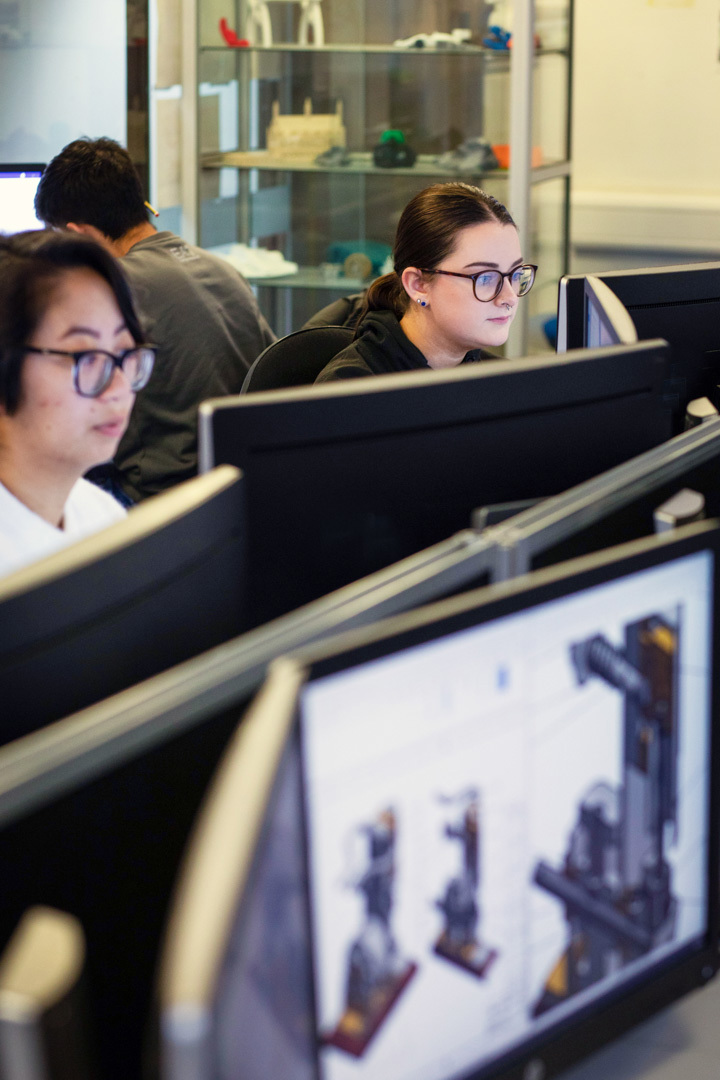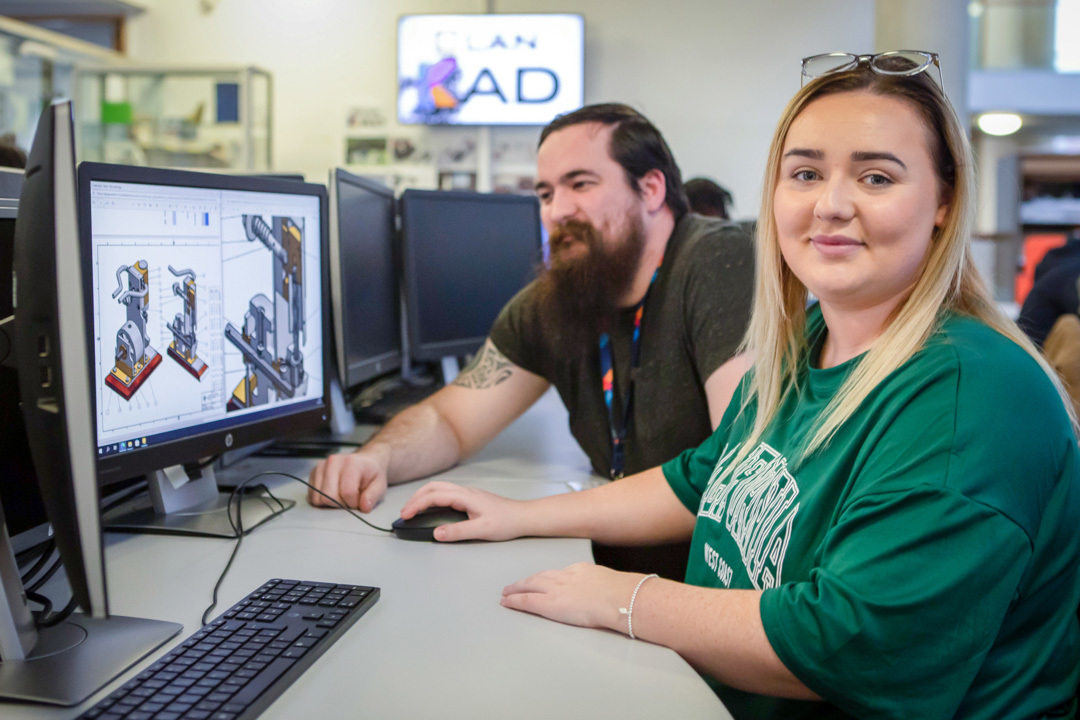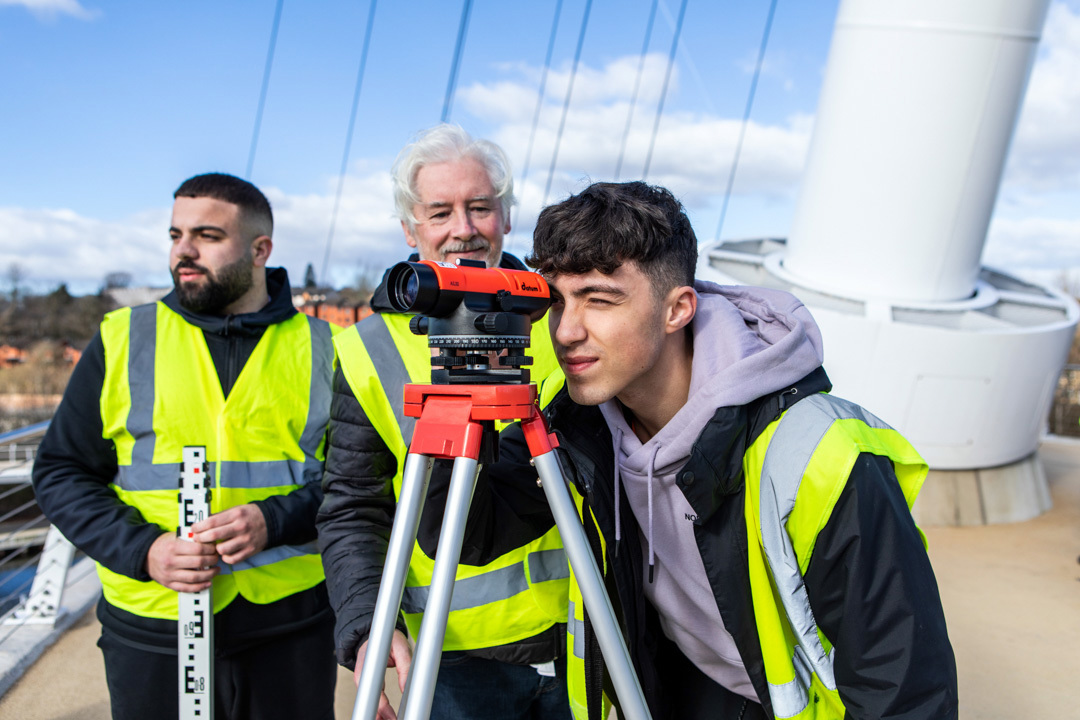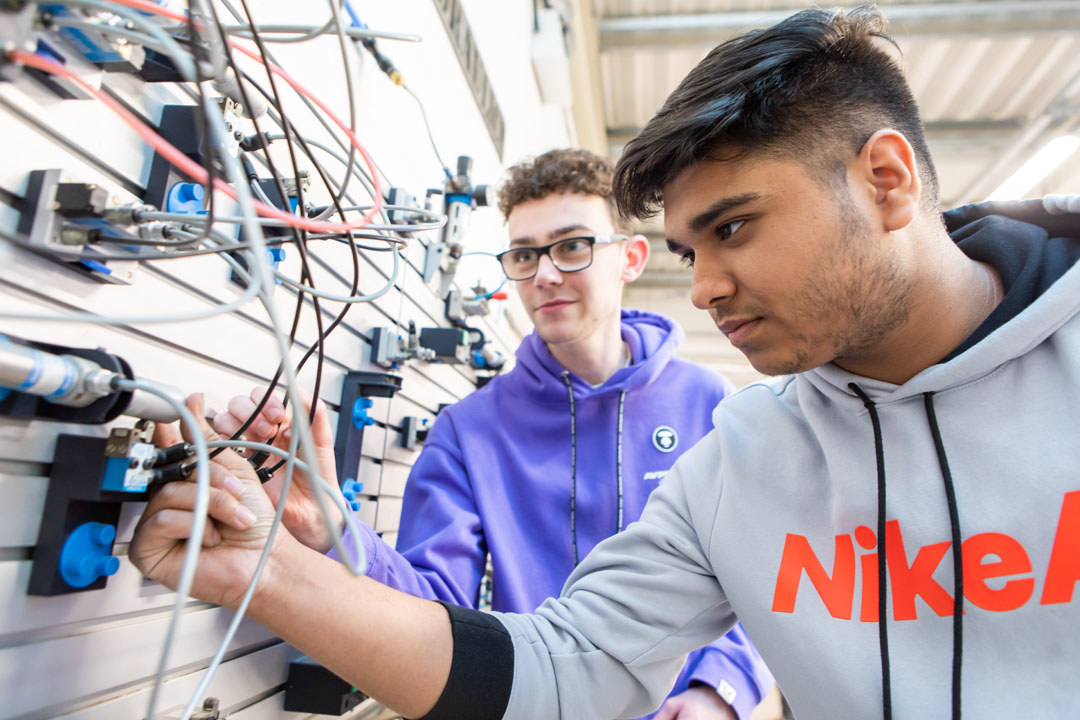
Course overview
Computer Aided Design (CAD) is the two-dimensional or three -dimensional modelling of physical structures. It uses specialist computer software to create these models with precise measurements. It is used in a wide range of industries including engineering, product design, architecture and industrial design.
The use of CAD has significantly transformed many industries and it is a leading technology in design and manufacturing. It increases productivity and efficiencies, speeding up the design process and allowing for high quality and adaptable design, making industry more competitive and responsive to market demands.
What you will learn
Year 1 of the course will begin by building your skills and knowledge in using CAD software for both 2D and 3D work.
Once you have mastered that, you will then explore design workflow, specialised CAD software and emerging technologies such as 3D printing, 3D scanning and virtual reality.
Year 2 You will explore more specialised CAD practices, develop interactive immersive engineering visualisations and spend hands-on time with prototyping and manufacturing practices. You will also explore some engineering fundamentals, which are key to good design practice.
 |
 |
 |
 |
 |
 |
 |
 |
 |
 |
 |
 |
 |
 |
 |
 |
 |
 |
 |
 |
 |
Entry requirements
At least one from the following:
- A Higher, preferably in technical or design subjects OR
- Successful completion of an NQ in a related subject OR
- Successful achievement of a Foundation Apprenticeship in Engineering OR
- Other equivalent qualifications or experience
For this course, if English is not your first language
- you need to have SQA ESOL Higher (or equivalent, click here to see equivalent qualifications)
- If you do not have a formal ESOL qualification but your language skills meet this level, you should apply for your course and then contact our Admissions team to organise an internal language assessment here at the College.
Career Opportunities
Others have progressed into careers, such as:
- CAD Technician
- Geotechnical BIM Technician
- CAD Coordinator
- Assistant Design Manager
- Architectural Technician
- Roof Truss Designer
- Civil Engineer
- Industrial Design Engineer
- Senior Designer
The CAD teaching team have worked across industries including the Automotive sector and in Architecture. This means we can provide a unique insight into the world of work, give real life examples of how your learning is relevant in a very dynamic and fast changing environment.
Future prospects
Some of our past students have progressed on to further studies in:
- Product Design
- 3D Art/Animation
- Immersive systems
Real Industry Connections
The CAD teaching team have worked across industries including the luxury Automotive sector and Architecture. This means we can provide a unique insight into the world of work, give real life examples of how what we’re teaching you is relevant in a very dynamic and fast changing environment.
Our Environment
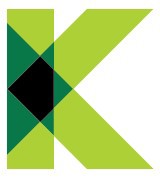 CAD and its associated technologies are at the forefront of environmental awareness. Everything that is manufactured in the world will have CAD tech associated with it. Designing products and educating within CAD means that we don’t have to use lots of paper wastage (we have reduced paper waste by 95%) and can also teach one of our days online. This reduces unnecessary travel to the college and promotes confidence in our learners to work effectively remotely.
CAD and its associated technologies are at the forefront of environmental awareness. Everything that is manufactured in the world will have CAD tech associated with it. Designing products and educating within CAD means that we don’t have to use lots of paper wastage (we have reduced paper waste by 95%) and can also teach one of our days online. This reduces unnecessary travel to the college and promotes confidence in our learners to work effectively remotely.
The utilisation of CAD has led to less wastage of pre-production components. VR (Virtual Reality) is at the forefront of this change, building components and being able to see them in 3D through the user headsets, means that we can delay actual production of test components and that means less wastage going to landfill.


